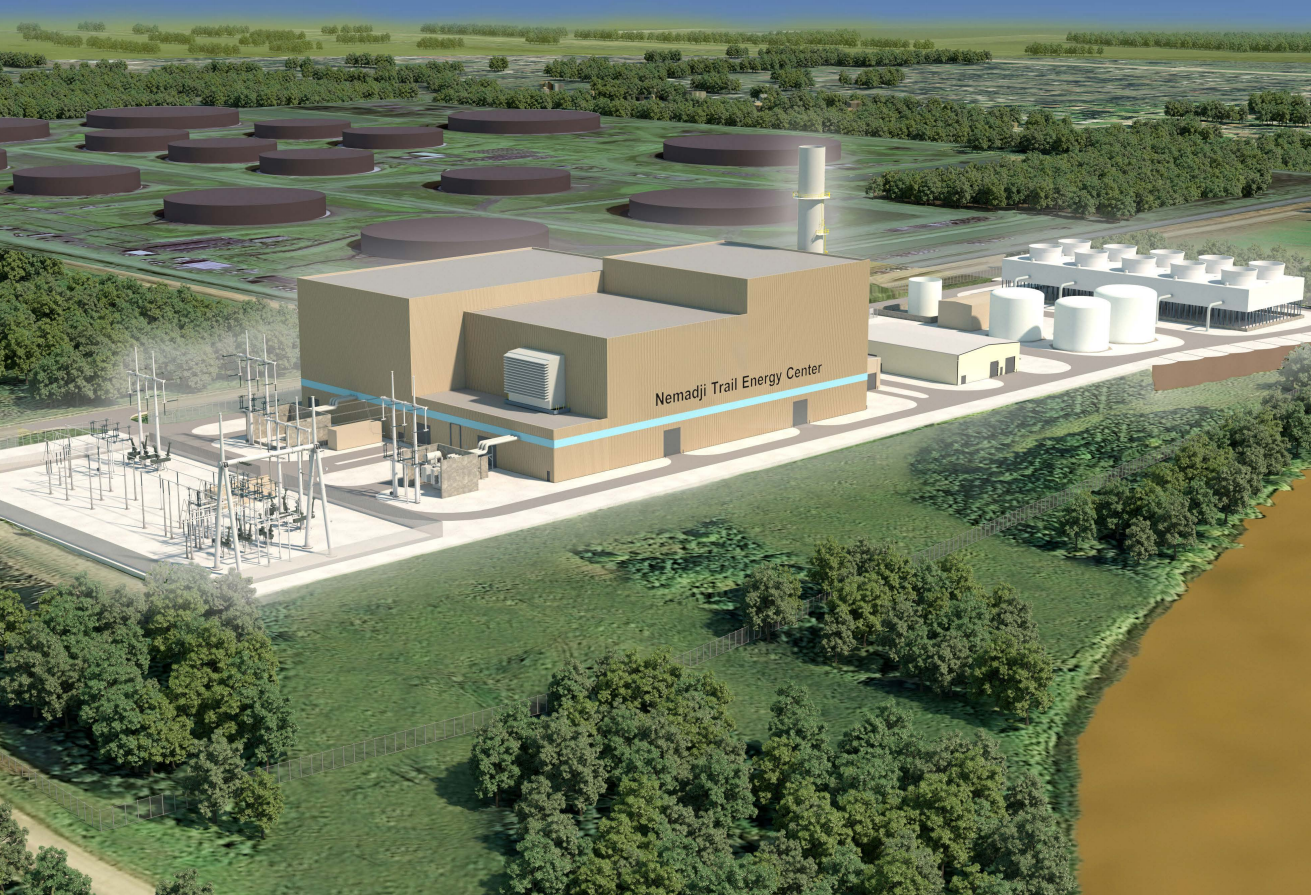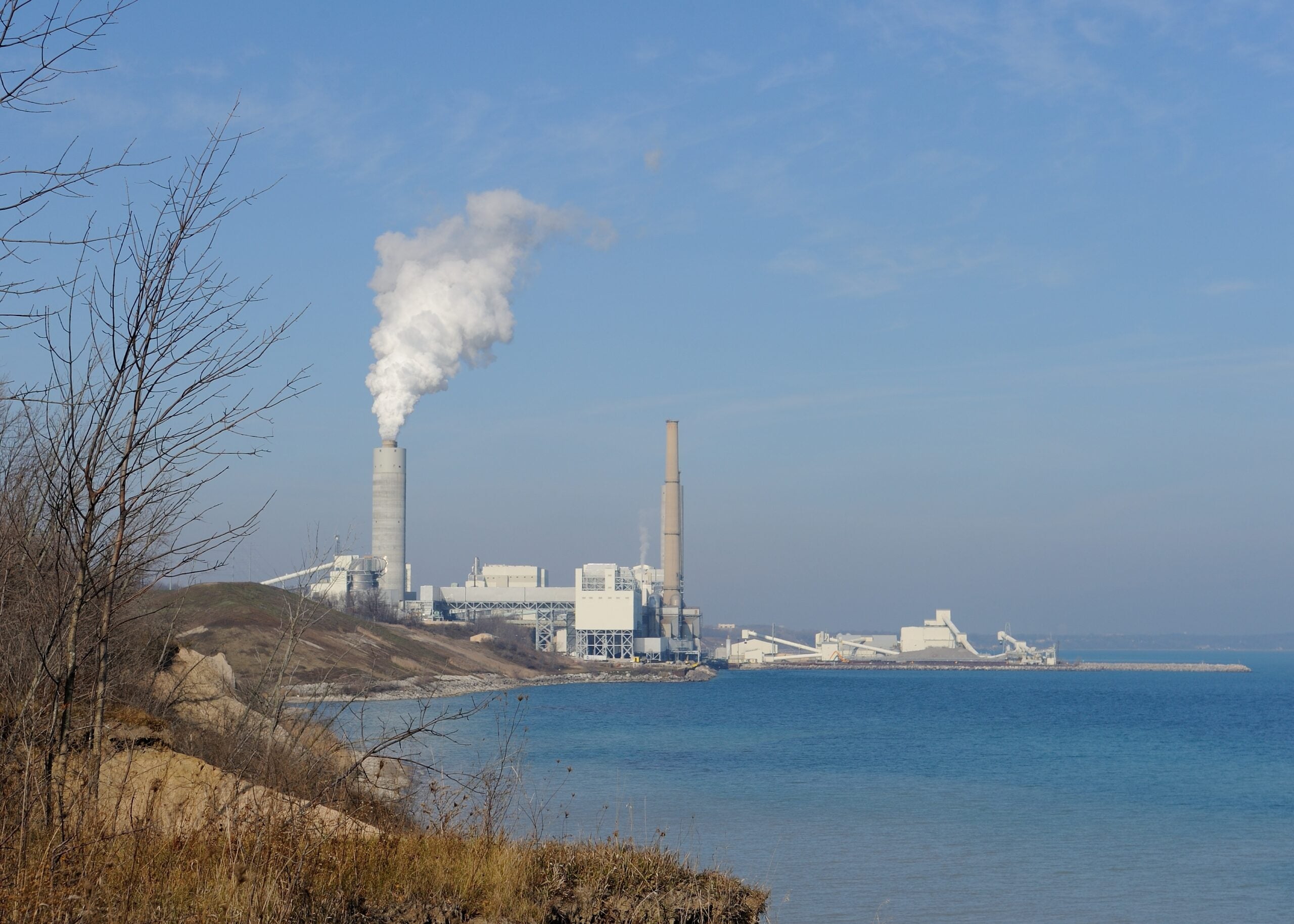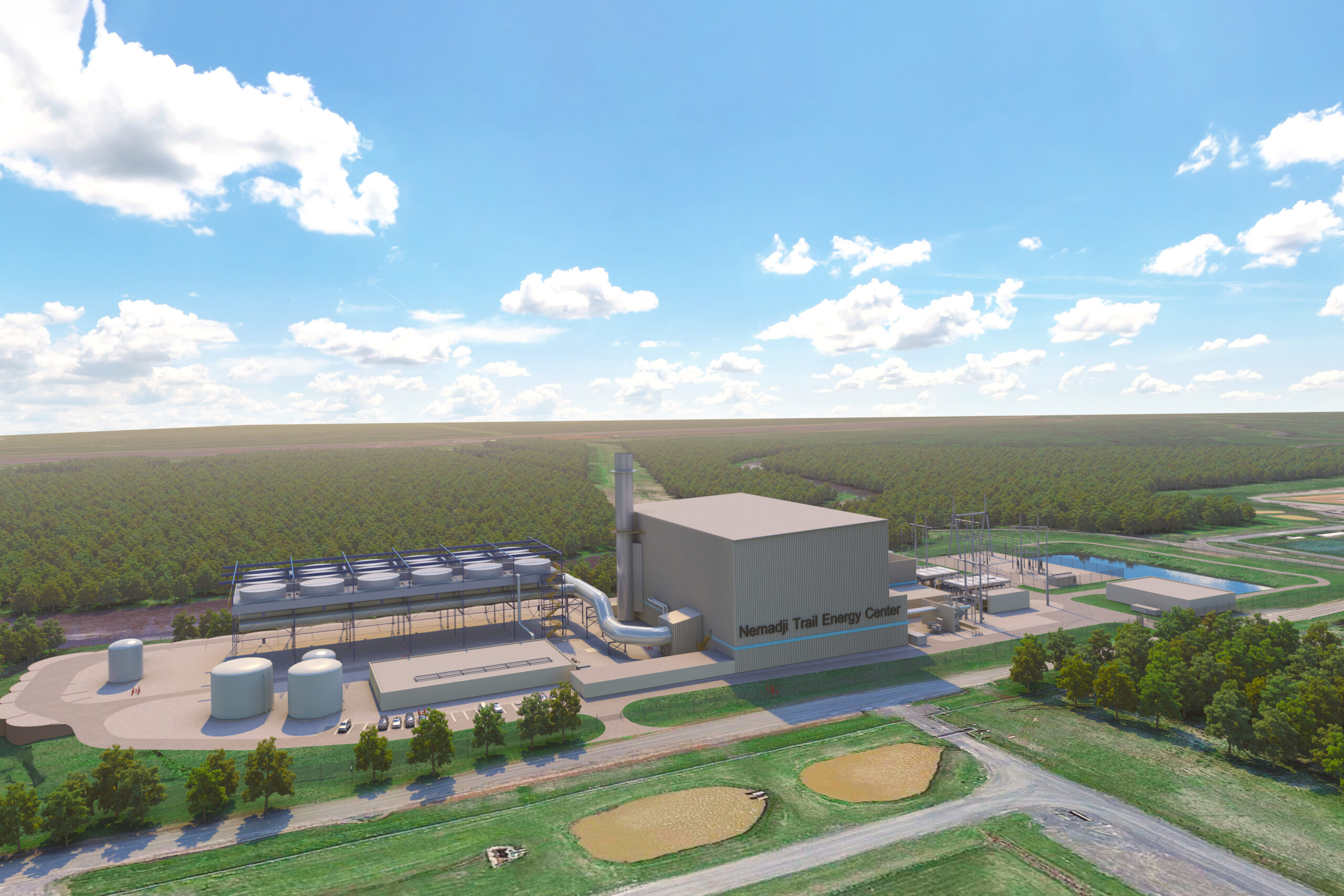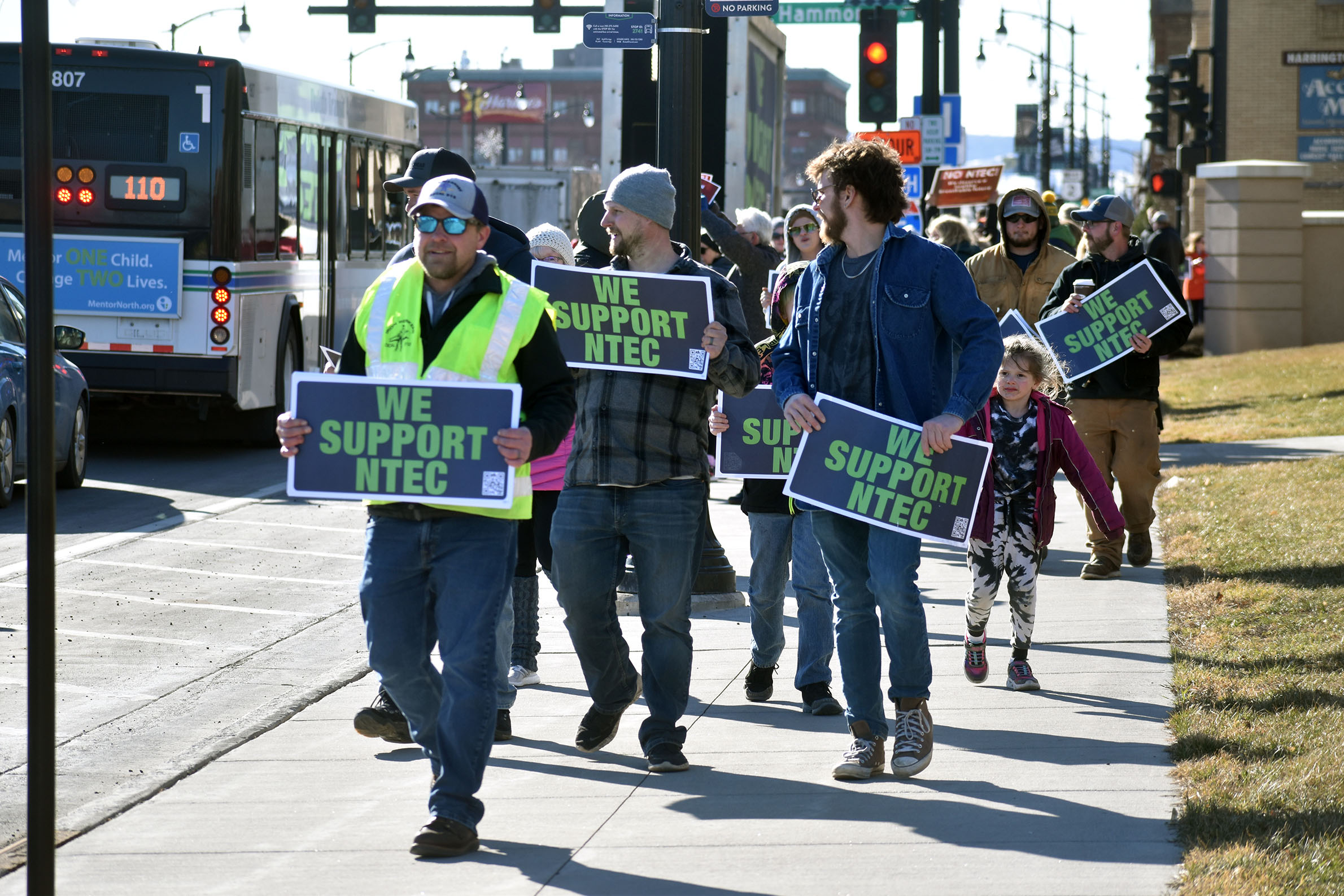A proposed $700 million natural gas power plant in Superior, Wisconsin is one step closer to breaking ground after a Minnesota appeals court ruled it is a “more reliable and lower cost source” of energy than equivalent-sized wind or solar power projects.
The 625-megawatt Nemadji Trail Energy Center planned for construction by 2025 near the Nemadji River in the city of Superior has faced numerous legal challenges from a coalition of groups like the Sierra Club, Honor the Earth, Union of Concerned Scientists and the Minnesota Center for Environmental Advocacy since it was first proposed in 2017.
The latest challenge argued that Minnesota Power and La Crosse-based Dairyland Power, which plan to operate the plant jointly, didn’t provide enough evidence to the Minnesota Public Utilities Commission showing the gas power plant is the best and most cost-effective option for meeting future energy needs.
Stay informed on the latest news
Sign up for WPR’s email newsletter.
The utilities have argued the gas plant is needed to ensure reliability as they transition away from coal-fired power plants and brings more solar and wind power projects online.
In a 16-page opinion, the court said that Minnesota Power and the state agency “offered extensive evidence and analysis showing that the transition away from coal and toward intermittent renewable resources impairs reliability and could cause a reliance on more expensive energy markets.”
“Their analyses also demonstrated that NTEC addresses these concerns, providing a more reliable and lower cost (including environmental costs) source of energy than the equivalent renewable resources,” said the ruling. “Accordingly, substantial evidence supports the commission’s determination that NTEC best serves the public interest.”
Stephanie Fitzgerald is an attorney for the Minnesota Center for Environmental Advocacy. She said the court ruled the regulatory agency made “reasonable findings” on the need for the Superior gas plant. But she said that doesn’t mean spending $700 million on a new “fracked gas” plant is right or wise.
“We have no doubt that if NTEC is to be built just a few years from now, we’re going to look back on that as unconscionable,” said Fitzgerald. “And it’s really hard to even have this conversation while the Boundary Waters area is on fire and while scientists are begging decision makers to wake up to the climate reality.”
Fitzgerald said the group is reviewing the appeals court ruling and will decide whether to appeal it to the Minnesota Supreme Court in the coming weeks.
The issue decided by appeals court judges Monday had already been brought to the Minnesota Supreme Court as part of a larger effort to require further environmental study of the proposed Superior gas plant.
In April, Minnesota’s high court ruled the Minnesota utilities commission was not required to conduct such a review under the state’s Environmental Protection Act before approving construction agreements and operation of a Wisconsin power plant by a Minnesota based utility. Justices sent the challenge related to evidence and need for the plant back to a state appeals court.
Fitzgerald said the Minnesota Center for Environmental Advocacy plans to lobby for a federal environmental review before the project gets underway. She said Dairyland Power has applied for hundreds of millions of dollars in loans from the U.S. Department of Agriculture for the gas plant. Fitzgerald said her group has already petitioned the department to require an environmental review before they make any loan decisions.
“So, we do plan to hold the federal government accountable for its promise to stop subsidizing fossil fuels,” said Fitzgerald.
A statement from Minnesota Power lauded the appeals court for its ruling on Monday and called it an “important step forward for the Nemadji Trail Energy Center project.”
“The Court also cited how (Nemadji Trail Energy Center) will complement (Minnesota Power’s) additional wind and solar resources for both energy and demand and overall costs and will facilitate the transition of the company’s planned coal unit retirements,” said the statement. “The company is the first utility in the state to achieve the delivery of 50% renewable energy to its customers and has announced a vision of achieving 100% carbon-free energy by 2050.”
Another legal challenge seeking to block the gas plant is pending in Wisconsin. In February 2020, environmental advocacy groups Clean Wisconsin and the Sierra Club petitioned an administrative law judge to review a prior approval by the Wisconsin Public Service Commission.
Wisconsin Public Radio, © Copyright 2025, Board of Regents of the University of Wisconsin System and Wisconsin Educational Communications Board.






